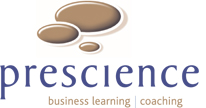A Comprehensive Leadership Programme for Sherwin Williams Diversified Brands Europe (DBE) – Case-Study
Sherwin-Williams Diversified Brands Europe, owners of Ronseal, Geocel Sealants and Purdy Brushes had experienced significant growth in their European operations. As a result many people in the organisation found themselves taking on roles of increasing seniority, responsibility and complexity.
To enable such people to lead and perform to best effect Sherwin-Williams DBE approached Prescience to design and develop a tiered Leadership development programme aligned to the organisation’s ‘Leadership Pipeline’ and accompanying competencies.
Key outputs from the programme were to enable participants to:
- Develop the capability appropriate to the participants’ role and Leadership Pipeline level
- Provide participants with insight into their individual leadership style, strengths and development areas and their impact on others
- Enable participants to develop and deploy structured action plans to improve effectiveness as Conscious, Purposeful, Skilful leaders in delivering key organisational goals and objectives
- Support planned career progression for identified individuals enhancing talent retention and development
The programme comprised three levels of activity for senior, middle and first-line managers. The programme adopted a ‘cascade’ process whereby participants at the senior level could coach and support their direct reports attending the next tier of activity and so on providing a ‘shared language’ and approach throughout the business.
Key elements to the programme included:
Senior Management Activities
Workshop 1; Emotional Intelligence, Leadership Impact & Coaching
- Ei Leadership competencies and four dimensions of emotional intelligence
- 360 feedback and identification of participant Ei leadership strengths and development areas
- Leadership, ‘followership’ and Goleman & Boyatzis Six Leadership Styles
- Coaching at Work and Coaching Leadership style
- The GROW coaching model and supporting skills
- Remote and non-observed performance coaching
Workshop 2; Raising the Bar & Leading Sustainable Change
- Leading and managing for proper performance
- Leading with influence and managing conflict
- Leading positive workplace change and enabling transition
- Leading People in the Neutral Zone
- 4P’s communication; Purpose-Picture-Plan-Part
- Participants’ Leadership Journey and personal Transition phase
Middle Management Activities
Workshop 1; Leading for Performance
- The Leadership – Management continuum and participants’ role balance
- Leading proper performance and Situational Leadership
- Leading Proper Performance; the Performance Cycle and skills development
- Understanding our impact and Push-Pull communication
- Non-directive coaching and the GROW framework
- Coaching Skills development and real-time colleague coaching
Workshop 2; Leading with Effective Influence
- Behavioural Style Preference and Impact and the Strength Deployment Inventory (SDI)
- Influencing & engaging differing behavioural styles
- Behaviour change in conflict and managing conflict response
- High performance team-working and leading high performance teams
- Leading Change & Transition and the Bridges Transition model
- Leading People in the Neutral Zone
- Consolidating positive workplace improvement
Introduction to Leadership Activities
Workshop 1; Introduction to Management
- Fayol ‘management’ principles and programme basis
- The ‘road to promotion’, Development States and Learning Cycle
- Management planning and prioritising (including self-management)
- Key planning and prioritising tools and application
- Structured decision making methods and 7 steps mode
- Managing Effective Meetings
- 3 stages of effective meetings
- Chairing skills
Workshop 2 – Managing People’s Performance
- Understanding communication Impact and Transactional Analysis
- Managing conflict, difficult communication situations and assertiveness skills
- Managing people’s performance
- Foundations of effective performance – Clarity – Ability – Motivation
- Attitudes/behaviours cycle; Theory X / Theory Y
- The performance management cycle
- Authentic Feedback and learning
- Determining and agreeing effective performance objectives
All levels of the programme incorporated pre, inter and post workshop activities including 360 feedback providing participants with insight into their respective leadership strengths and development areas and supporting them in developing and deploying structured action plans to further develop their leadership effectiveness.


